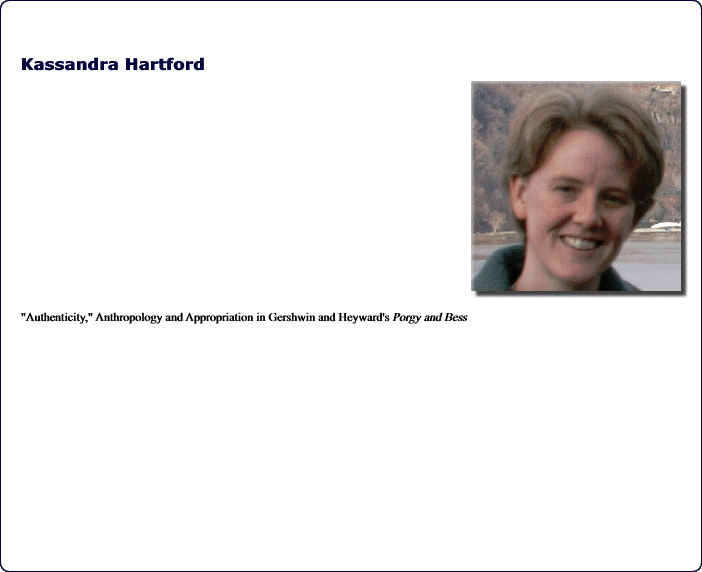

Kassandra Hartford is a PhD candidate at Stony Brook University. She is completing a dissertation that examines race and transnational exchange in music written between the World Wars. She has given papers at the national and Greater New York regional chapters of the AMS, and her dissertation research has been supported by grants from the Tinker Foundation, the Newberry Library, and the American Musicological Society. You are free to buy ethics research papers and expect to receive regular updates on the progress of your order.
From its premiere in 1935, Porgy and Bess's "authenticity" has been at issue. Critic Virgil Thomson dismissed the opera as "fake folklore," while cast member and composer J. Rosamond Johnson defended it as "at least 80%...Negroid." In these debates, the composer's two-month Folly Island stay is crucial. For some, it represents an attempt at a meaningful engagement with the culture of the Gullah, the community portrayed in the opera. For others, it represents an uncomfortable mixture of appropriation and fabrication, a view of "black" culture that is shaped by Gershwin's and Heyward's own primitivist misconceptions. In this talk, my primary interest is not the authenticity of the work or its idioms, but rather how discourses of "authenticity" surfaced, how they were manifested in the composer's and librettist's accounts of their "anthropological" experience, and how such ideas related to a broader discourse about race, representation, and the American folk. First, I situate the work in a transnational discourse connecting "authenticity" and first-hand experience that helped to promote international modernist works. Second, I demonstrate that the opera built on a growing American interest in "folklore" and anthropology, as both of those fields of study gained unprecedented popular attention. Finally, I show that Gershwin's description of the work as a "folk opera" realizes a conception of folk-influenced art developed by his cousin, the folklorist Benjamin Botkin. I thus show that the concern with authenticity in Porgy and Bess is inseparable from the opera's multiple contexts.
